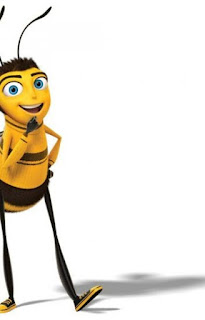By: Emily Hovick
Believe
it or not, you have a bee to thank for every one in three bites of
food you eat. Honey bees perform about 80 percent of all pollination
worldwide. Although grains are primarily pollinated by wind, 70 out
of the top 100 food crops (which supply about 90 percent of the
world’s food) are pollinated by bees. Unfortunately, the bee
population has been on decline. Industrial agriculture,
parasites/pathogens as well as climate change have all been blamed
for this epidemic. Many campaigns have formed because to bring
awareness to the decline in bees. Some have taken it a step further
and started keeping bees, such as me! This post is going to give you
all the details you need to start yourself.
What
you’ll need
Smoker
– Any size will do but
the buzz on the streets is that the larger ones are easier to keep
lit.
Veil
– You are going to need
some sort of protective garments like a veil and a jacket. You
probably do not need the full suit.
Hive
tool – Any flat bar
will work, or a flat head screw driver if you are on a budget but if
you can afford it, the Italian Hive tool is the one to buy. It is
well crafted for most any beekeeping task.
Bee
brush – No, this isn’t
for grooming the bees!
Top
Feeder – A 32 oz. mason
jar with holes poked in the cap that fits into the hole drilled into
the hive’s cover, into which syrup (2 parts water and 1 part sugar)
is poured. They syrup gives them the energy to build the wax
honeycomb
Spray
bottle – Fill it with
syrup. Do not reuse an older spray bottle if it has been used with
other chemicals. Bees are very sensitive.
Queen
catcher – This makes
catching the queen a lot easier. No one wants a ticked off queen bee!
Bee
hives – Now the one
place you don’t want to skimp on is hive boxes. Get a few, at least
three, because you never know when you are going ot need an extra
one. But when you do, you need it immediately and not a moment later.
Having a few on hand will save you a lot of grief in those moments.
Bottom
board – This is a
wooden stand on which the hive rests. Set the bottom board on bricks
or concreted blocks to keep it off the ground.
Mail
order bees
Obtaining
bees is a lot easier than you would think. I would start by checking
local bee associations and Craigslist in your area. Beekeeping
enthusiasts sometimes come across swarms they are willing to sell.
The only negative with this is the season as it is a lot easier to
start a hive in the spring.
If
you choose to order bees, 3 pounds is usually a good amount. For a
few dollars extra, you can get the queen bee marked. This is a good
idea as it will save you time finding her if you are an amateur.
Since they will come in the mail (yes, in the mail) you should really
notify your local post office.
There
are three types of bees: the queen, the worker, and the drone.
Queen
bee – The queen bee’s
only purpose is to lay eggs. This is seriously all she does. (Fun
fact: during the height of laying season, the queen can lay around
1000 eggs a day!)
Worker
bee – Worker bees are
sterile female bees. As their name implies, they work.
Drone
bee - Drone bees are
male bees. Their sole purpose is to mate with the queen. A drone bee
will die after mating. He is also not allowed in the hive come
winter. Ouch!
Once
initial setup of the hives is complete, management is a breeze. Bees
require little to no care. The hives should be checked on every now
and then to make sure it is still healthy. You will want to make sure
that the queen bee is still laying eggs, the hive is clean of dead
bees and intruders like mites, and that your bees have enough honey
stores. The first winter is the hardest on the hive. Let the bees
keep their honey to survive the winter and plan on harvesting some
liquid gold the following year!



No comments:
Post a Comment